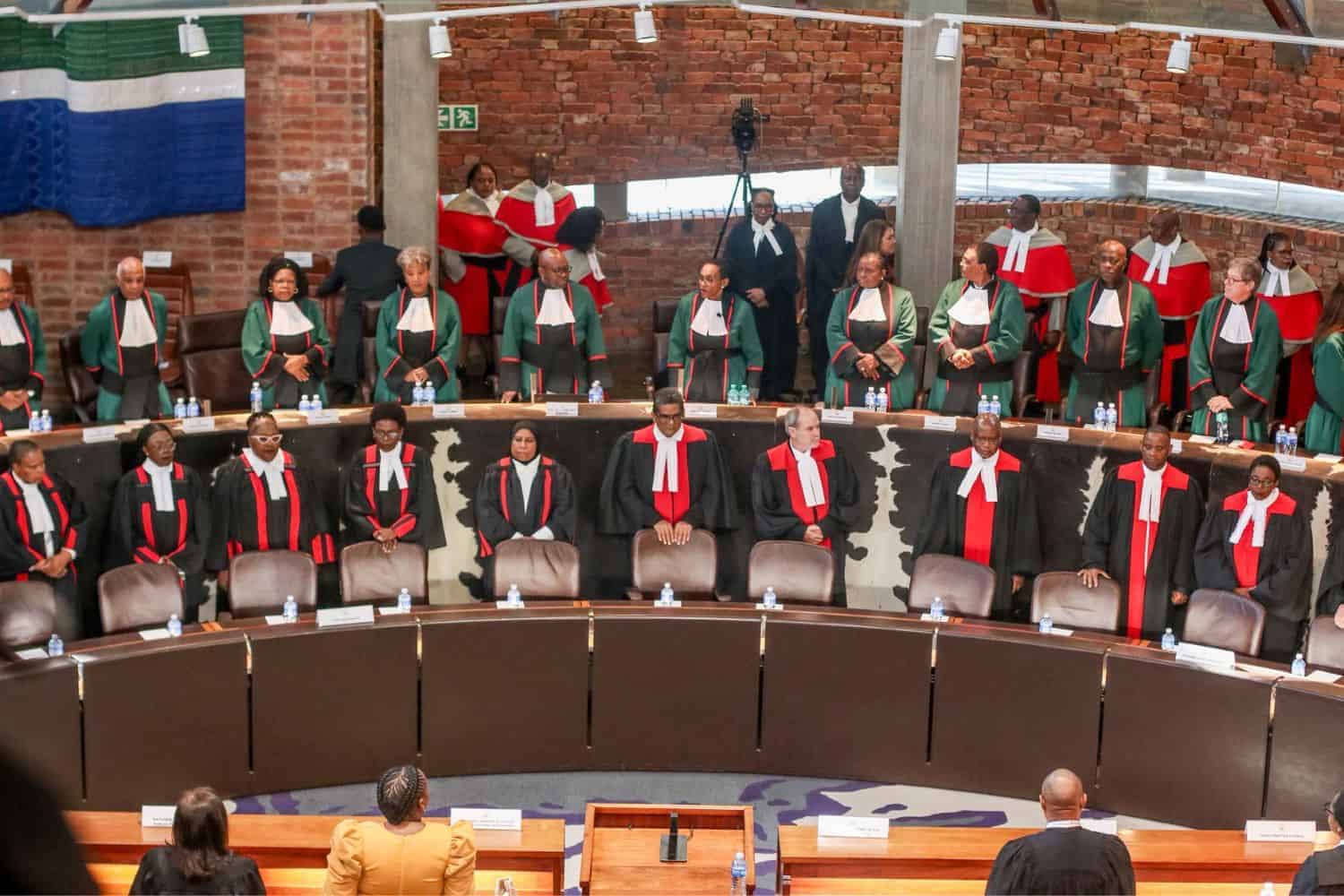The CGE acknowledged the ruling in a brief statement on Friday.

The Constitutional Court (ConCourt) has ruled that the appointments of five commissioners to the Commission for Gender Equality (CGE) are invalid, citing Parliament’s failure to ensure adequate public participation in the selection process.
The ruling follows a legal challenge brought by the non-profit organisation Corruption Watch.
The respondents in the matter included the speaker of the National Assembly, the president, the Information Regulator, and the five CGE commissioners.
ALSO READ: Reserve Bank unlawfully interfered in Absa chair appointment, says court
Media Monitoring Africa was admitted as amicus curiae (friend of the court).
Corruption Watch contested the appointments of CGE commissioners chairperson Nthabiseng Sepanya-Mogale, deputy chairperson Prabashni Subrayan Naidoo, Thando Gumede, Bongani Ngomane, and Leonashia Leigh-Ann Van Der Merwe, all of whom took office in March 2023.
These appointments, for terms of up to five years, were made by the president upon recommendation by Parliament.
CGE commissioners’ appointment process challenged
The nomination process was led by Parliament’s Portfolio Committee on Women, Youth and Persons with Disabilities.
It began in June 2022 and closed nearly a month later.
A shortlist of four candidates was compiled in late August, while public comment was invited between 2 and 16 September.
Submissions were to be made via an online form linked through Parliament’s website.
The link led to a spreadsheet listing candidates’ names and qualifications, but their full CVs were not published.
READ MORE: Initiation schools: Commission wants answers on why recommendations haven’t been carried out
Despite Corruption Watch requesting an extension of the public comment period to 30 days, the removal of the character limit on submissions, and the release of CVs, the National Assembly proceeded with its recommendations to the president following candidate interviews.
The appointments were announced on 25 February 2023, and the commissioners assumed office on 1 March.
Corruption Watch then brought its application before the ConCourt under section 167(4)(e) of the Constitution, which grants the court exclusive jurisdiction to determine whether the National Assembly has failed to fulfil a constitutional obligation.
The organisation argued that Parliament’s process was flawed due to the limited public access to information about candidates, a 2 000-character restriction on submissions, and the short 14-day window for public comment.
The speaker defended the process, stating it was reasonable and consistent with past procedures.
It was argued that the 14-day period was sufficient, that public comments were properly considered, and that CVs could not be published without candidates’ consent in accordance with the Protection of Personal Information Act (Popia).
However, the Information Regulator clarified in an affidavit that such consent is not required when the information is needed for the performance of public duties.
ConCourt judgment
In a unanimous ruling delivered on Friday, the ConCourt sided with Corruption Watch and found that the public participation process was insufficient.
“In the circumstances, the appointment process conducted by the National Assembly therefore did not comply with the obligations imposed by section 59(1)(a) of the Constitution and is therefore invalid,” the summary of the 1 August judgement reads.
The declaration of invalidity has been suspended for 12 months from the date of the order, giving Parliament time to conduct a constitutionally compliant appointment process and allowing the president to make appointments.
Reactions
The CGE acknowledged the ruling in a brief statement on Friday.
“The commission remains committed to its legislative mandate and will continue to discharge its responsibilities while Parliament undertakes its processes.
“The commission will not make further public pronouncements or respond to media enquiries on this matter,” the statement reads.
In addition, Corruption Watch welcomed the outcome.
“South African citizens have a right to participate fully in these processes, particularly where such institutions are at the forefront of ensuring justice and enforcement of human rights in the country.
“The opportunity for people to have their say in the appointment of representatives to Chapter 9 institutions like the CGE, is an important example of that process,” the organisation said in a statement.
The CGE operates under section 187 of the Constitution, with a mandate to promote and protect gender equality.
In March last year, six other commissioners – Seeham Samaai, Mulalo Grace Nemathaheni, Mfundo Nomvungu, Yanga Malotana, Kamohelo Rodney Teele, and Marion Lynn Stevens – were recommended by Parliament and subsequently approved by the president.
NOW READ: MK party and Zuma suffer blow as ConCourt rules in Ramaphosa’s favour
Support Local Journalism
Add The Citizen as a Preferred Source on Google and follow us on Google News to see more of our trusted reporting in Google News and Top Stories.








